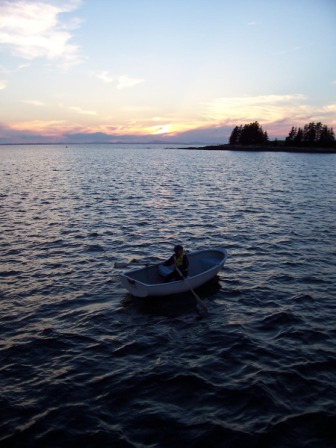I'm doing more hunting on Ancestry.com's immigration records, and have just learned that -- contrary to family lore -- my great-grandmother did not meet my great-grandfather "on the boat."
This stuff is fascinating, and sometimes exhausting.
Wednesday, November 29, 2006
Subscribe to:
Post Comments (Atom)


3 comments:
Family history is fascinating, isn't it? Some stories get twisted in the telling, or are deliberately misleading. Others are simply lost. An "Irish" great-grandmother of mine in a census taken soon after she was married, turned out to have had a German mother (who family lore says died when she was young and that's how she ended up in the convent school in San Francisco during the earthquake)... still trying to check that bit out.
Yes, I'm finding out that half of my French ancestors were actually English, half of my Scottish ancestors were Irish, and some portion of my German ancestors were French. So now instead of French/German/Scotch, I am French/English/German/Scotch/Irish.
Oh, and my German/French great-grandmother was married to a Cuban or Spanish soldier before she married my great-grandfather. No kids though, so I can't add Cuban or Spanish to my family tree.
I'm so confused.
I haven't paid for Ancestry.com yet, but I have registered on their site. This means I can access the free stuff (including ship manifests) and I get periodic emails from them where they offer free peeks at the pay stuff (like census records).
I think they're kind of pricy.
There are other sites out there that offer similar stuff, though I haven't explored yet. I heard about these two last night:
www.ellisisland.org
www.rootsweb.com
Also, Ancestry.com is offering a free 3-day trial, which might be a good opportunity to explore. But I would only recommend you do it when you are really ready to spend several hours, or even a couple of days, looking around. Just finding my great-grandmother on the passenger manifest took me about 3 hours, and I still haven't found my great-grandfather (which is how I know they weren't on the same boat). Sometimes it's easy to find who you are looking for, and sometimes it's awful. For example, the same missing great-grandfather is in the 1920 or 1939 census under a different name, because the census-taker's handwriting was hard to read.
Post a Comment